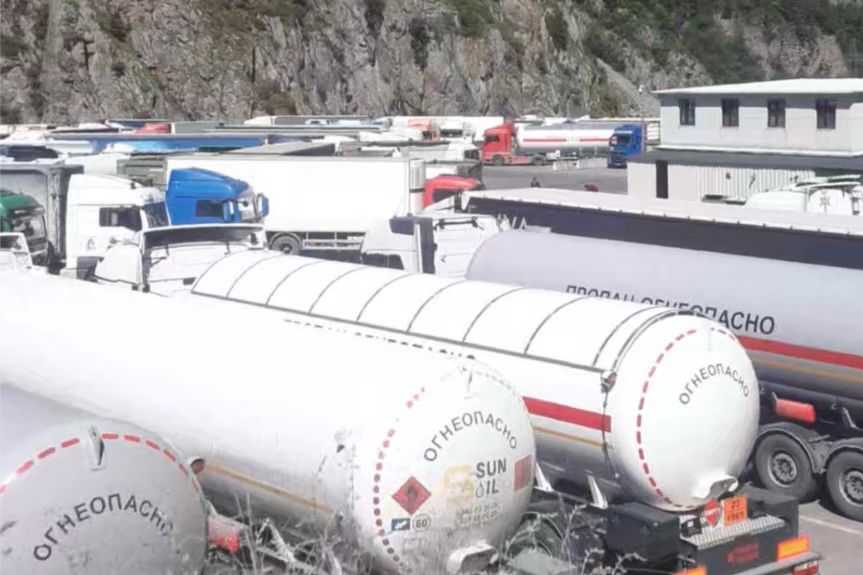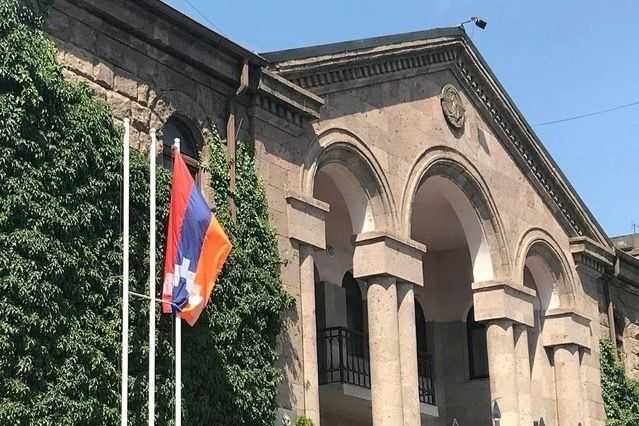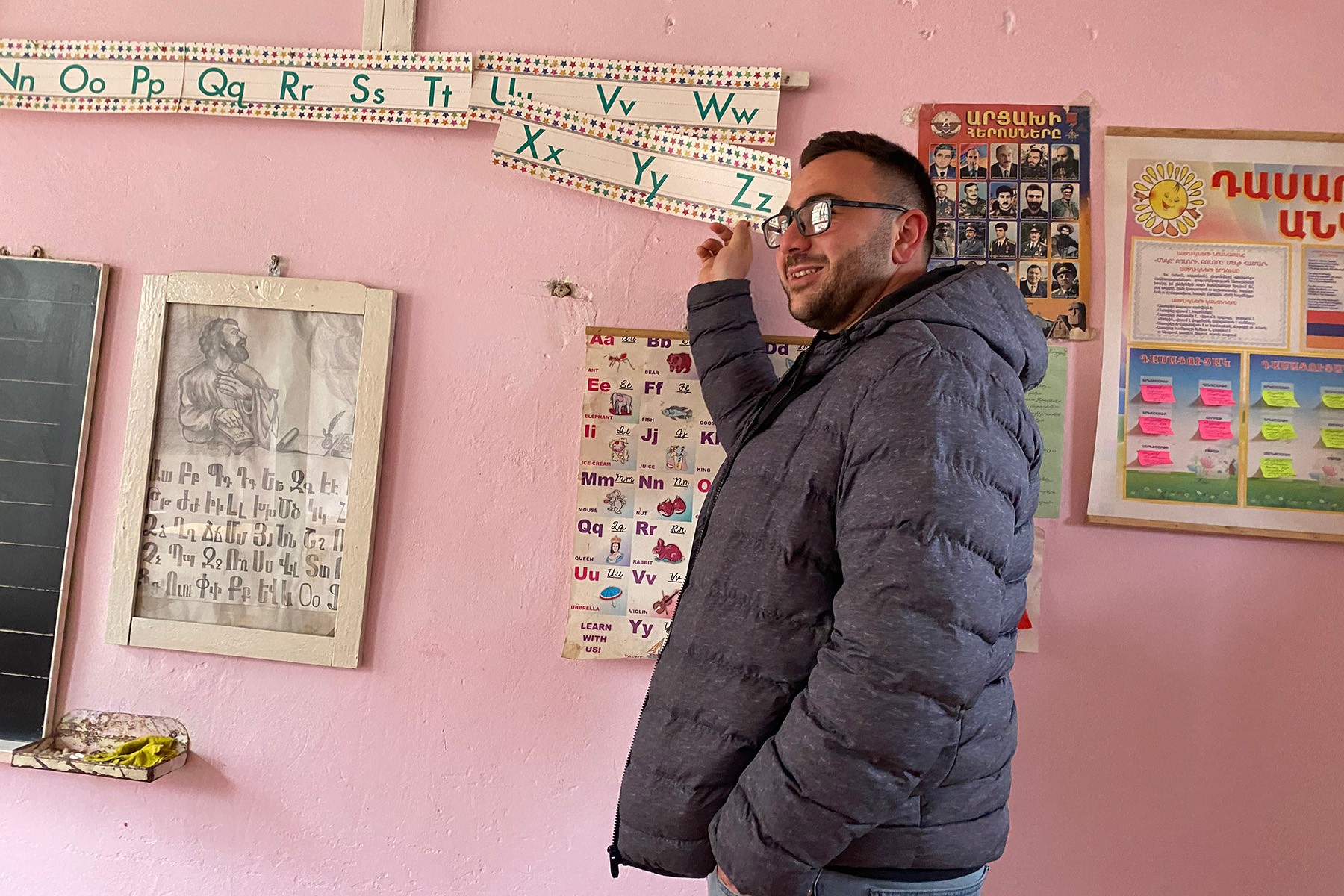
The village of Kolkhozashen, one of the most remote settlements in Nagorno-Karabakh has found new life with the arrival of Ashot Gabrielyan, a teacher from Yerevan with a vision to transform the village.
The village of Kolkhozashen (known as ‘Arpaduzu’ in Azerbaijani), population 180, lies in the forested mountains of southeastern Nagorno-Karabakh.
Calling the village isolated would be an understatement.
Housesin Kolkhozashen are scattered between rocky hills with no proper footpaths, turning a basic neighbourly visit into a hike. For several years now, there has also been no means of public transit, as the village’s lone bus driver enlisted in the army after the Second Nagorno-Karabakh War.
Mobile phone coverage is also spotty, and it’s likelier to catch a signal from an Azerbaijani mobile company than from an Armenian one. Though, to be fair, it’s not guaranteed that one’s phone will even have a charge, due to the constant power outages.
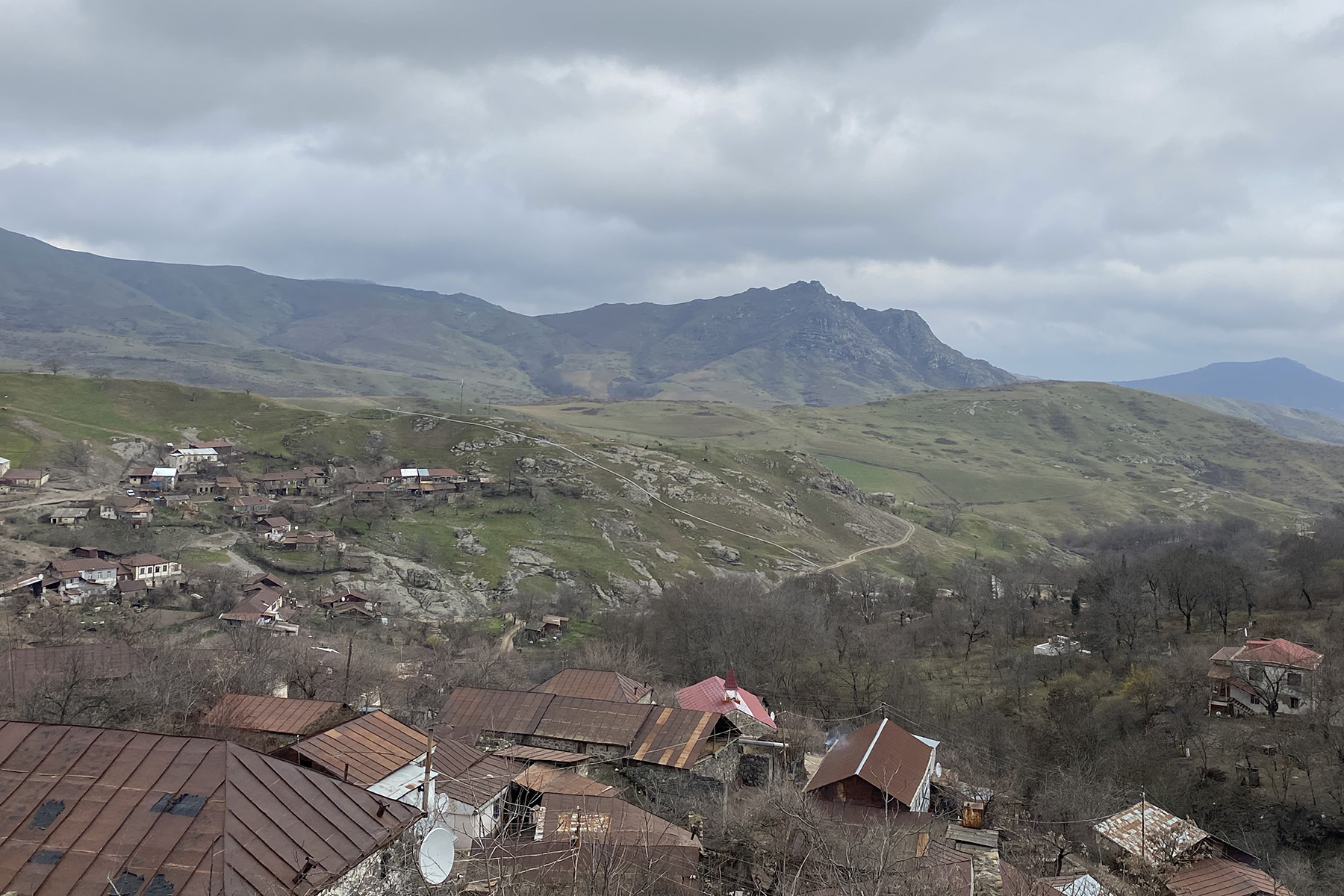
Such living conditions, especially under the threat of further conflict in Nagorno-Karabakh, have meant that no one ever moved to Kolkhozashen, that is until Ashot Gabrielyan arrived in the village in August 2021.
The 22-year-old teacher was born in the east of Nagorno-Karabakh, and had lived in Yerevan for over five years before joining the Teach for Armenia programme. The programme offers secluded communities better education and provides qualified teachers with employment opportunities.
Through the programme, teachers willing to move to the villages of Armenia and Nagorno-Karabakh are offered housing and compensation after being prepared as educators and community leaders.
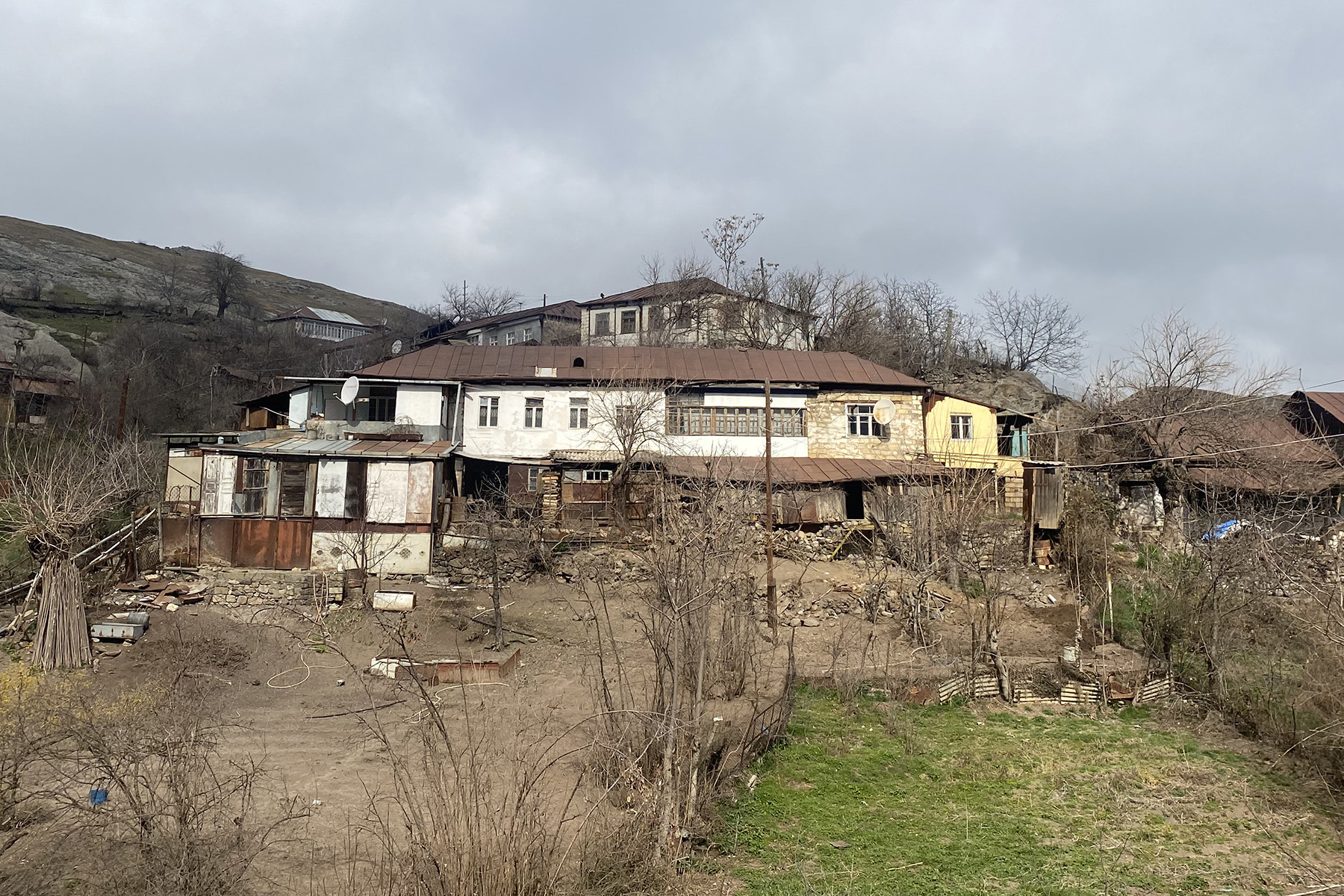
The Second Nagorno-Karabakh war drove Gabrielyan to quit both his job at the Armenian Ministry of Foreign Affairs and at a creative agency he founded with his brother, where he had worked as a manager.
‘After the war, I felt that I wanted to return to Artsakh [Nagorno-Karabakh]’, Gabrielyan told OC Media.
‘I truly believe that change comes with education’, he says, adding that education plays a crucial role in forming strong nations and states. ‘This was my motivation for returning.’
As a Teach for Armenia educator, Gabrielyan was expected to spend at least two years in the village he was assigned to — in his case, Kolkhozashen. The time commitment, he says, was not a problem. He saw the assignment as a ticket back home and a chance to help those who need it most.
Gabrielyan’s hometown is a two-hour drive from Kolkhozashen, but the lack of public transport to and from the small village makes visits to Askeran or Stepanakert virtually impossible unless residents with cars are headed in either direction.
‘My family wasn’t very supportive and instead asked me to consider my promising job or stay in Yerevan and continue my education’, he says. ‘My friends, on the other hand, believed that I could apply for this project but couldn’t believe that there’s a village called Kolkhozashen’.
‘Some thought I was joking when I said I was moving there’, Gabrielyan says with a smile.
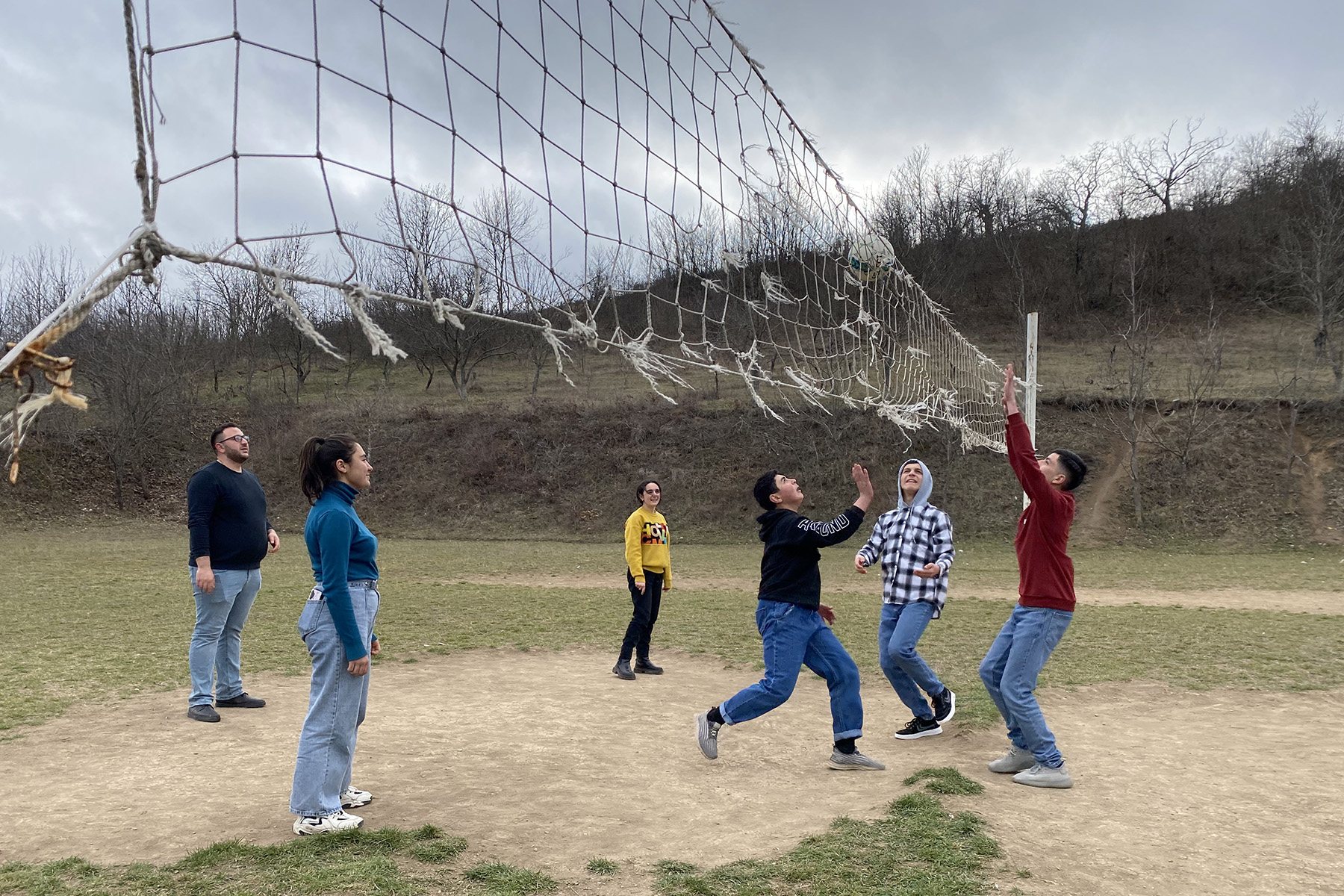
Recalling the village’s first reactions to his relocation, Gabrielyan says he was ‘asked what had happened to me — if my personal problems were so huge that I decided to escape’.
‘These kinds of comments are among the most common we [participants of Teach for Armenia] hear’, he says, adding that this perception usually passes as soon as the residents get to know them.
Though the project was launched in 2013 in Armenia and in 2017 in Nagorno-Karabakh, many participants find it difficult to sacrifice their old lives and adapt to new rural environments.
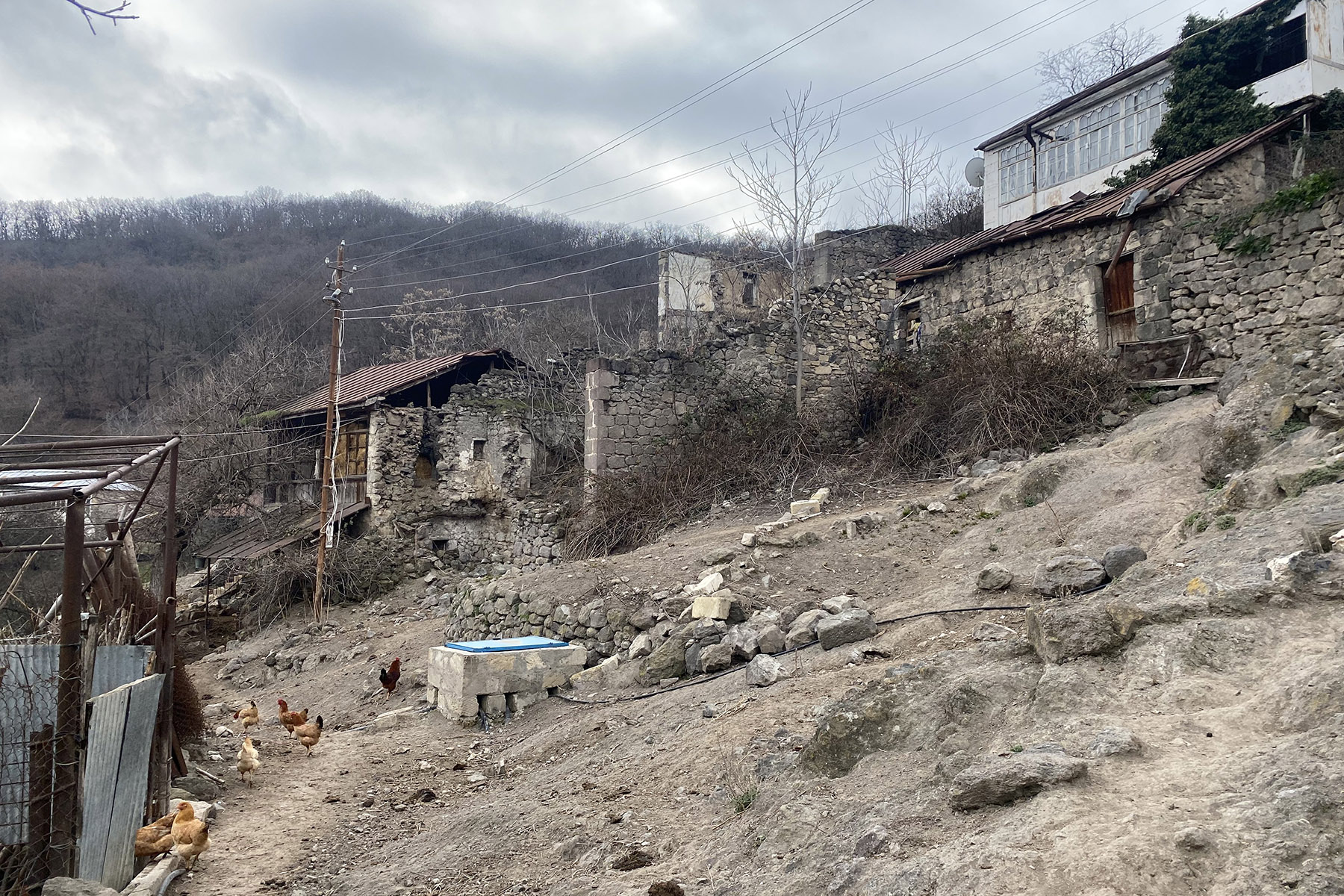
‘Some of the houses we are sent to are in a pretty bad state, or there might not be enough houses to host the teachers at all’, he explains, adding that his own house lacked furniture and needed renovation when he first moved in.
The new teacher
Kolkozashen has a single school, which has not been renovated since 1984, responsible for providing education to the village’s 35 children.
Gabrielyan teaches English and social studies. His students are so few that two or three grades usually sit together in the same lessons. There are no first-grade students, and only two children each are enrolled in the second and third grades.
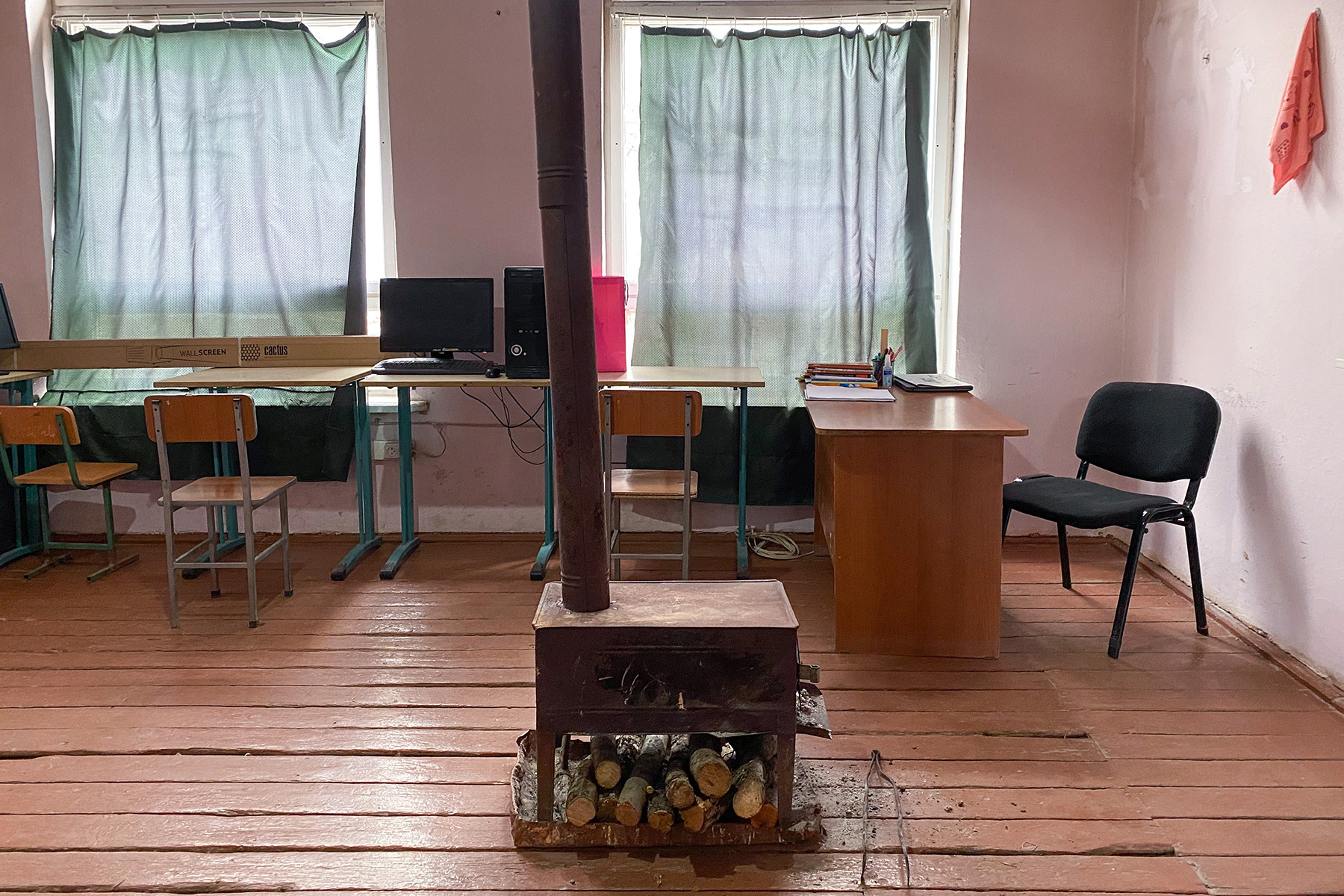
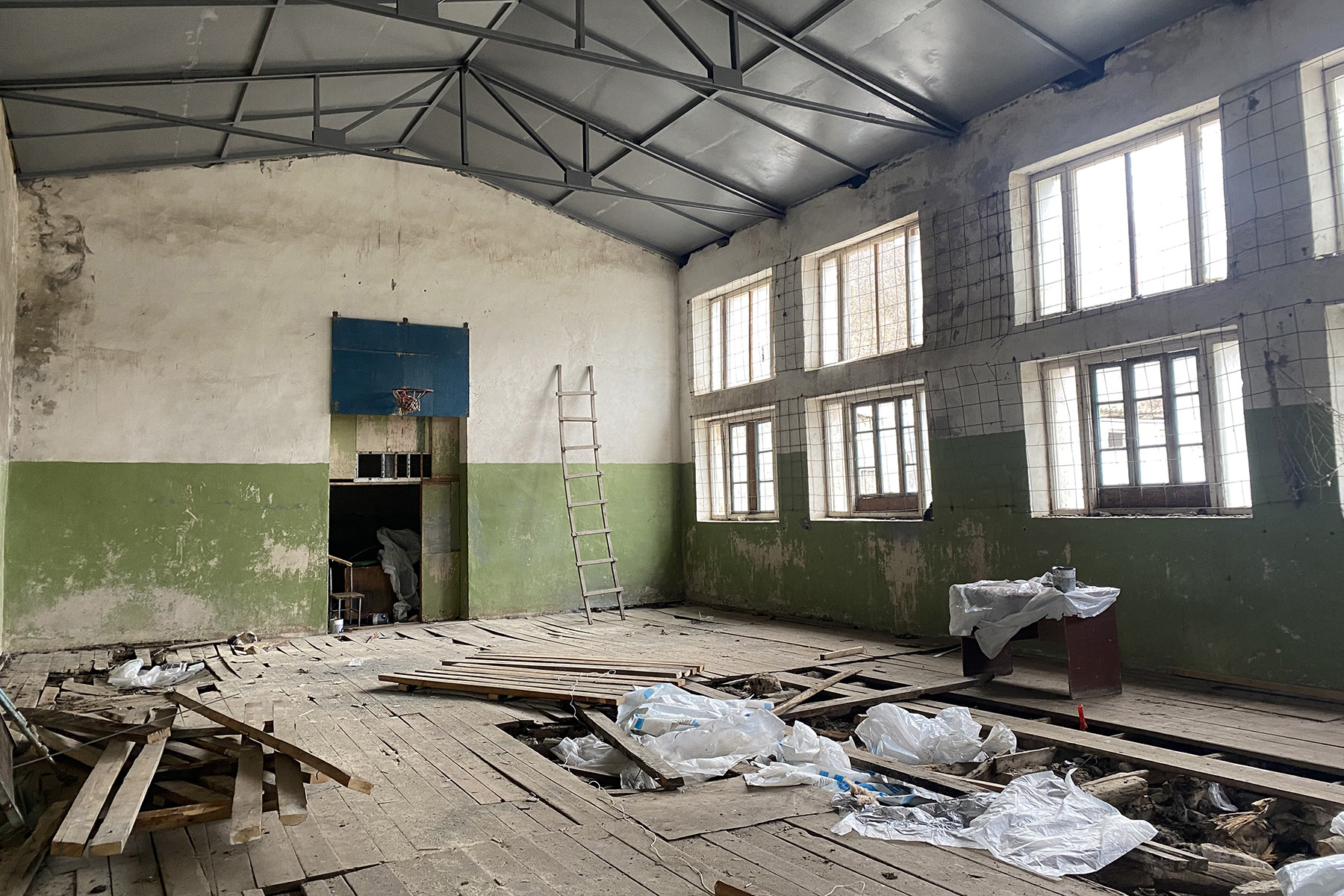
Gabrielyan believes that Kolkhozashen’s isolation from the rest of Nagorno-Karabakh and Armenia has a deleterious impact on students’ views of the world and their hopes for the future. This isolation, in turn, has driven Gabrielyan, together with the village youth, to establish the ‘Janeh’ community centre. The centre, when completed, will host training sessions for residents in topics ranging from media literacy to social media marketing and small business education. In this way, Ashot says, he hopes to give young people more of a reason to stay and help develop Kolkhozasehn.
Though the centre, which will be part of the village’s administrative building, is not yet complete, Ashot and his group have already launched a project to entice tourists. ‘Kolkhoz Quest’ is a game that leverages the rugged terrain of Kolkhozashen to give visitors a miniature adventure in which they learn about the history of Nagorno-Karabakh.
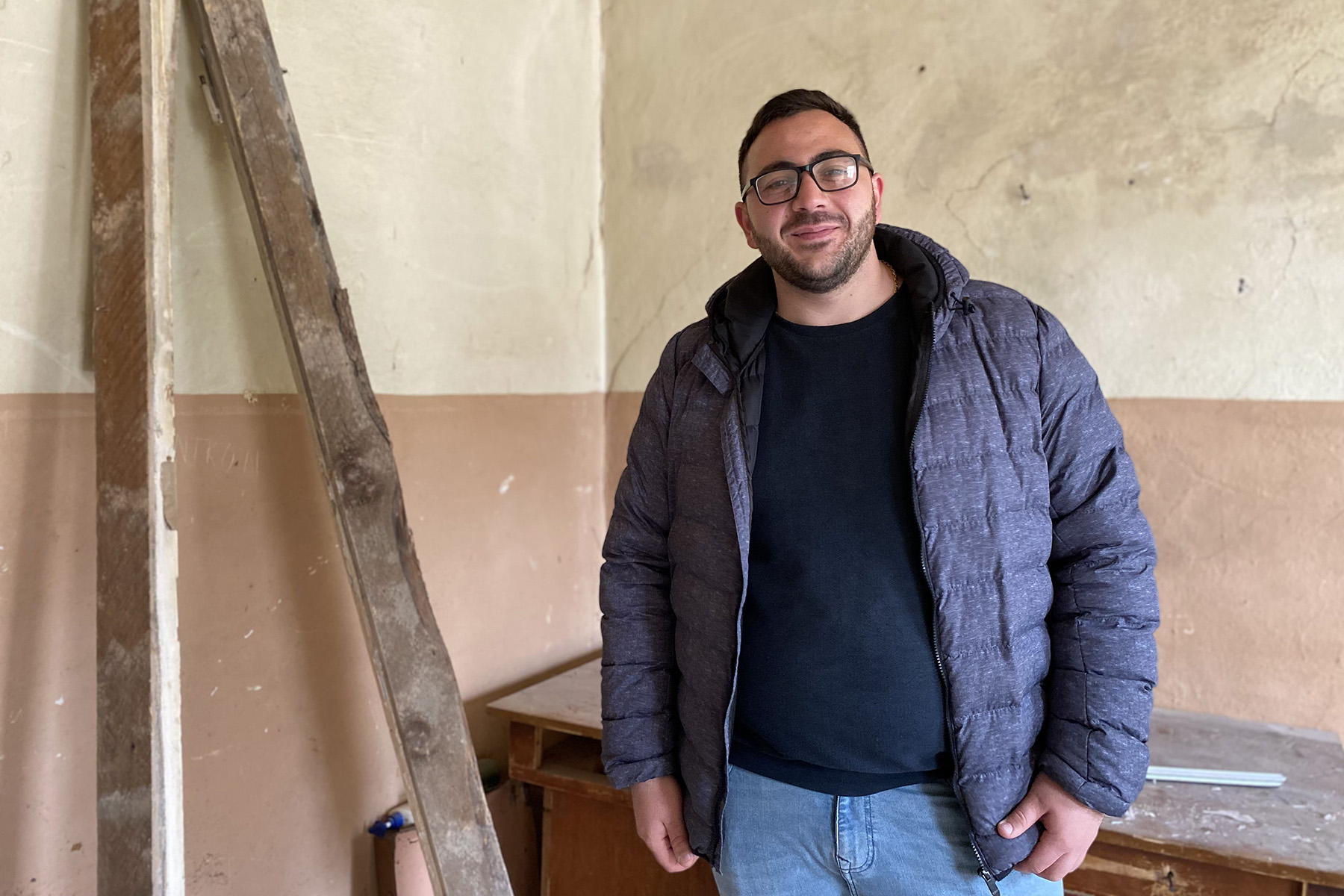
Work on establishing Janeh and Kolkhoz Quest moved into full swing after a successful crowdfunding campaign organised by the young teacher in December 2021. It is expected to start operating soon.
Once Ashot leaves the village, the young people who helped establis it are expected to plan and maintain its activities.
In the meanwhile, he continues his work as a teacher, much to his students’ delight. ‘We don’t want the classes to end’, Knar, a tenth grader, tells OC Media. ‘He conducts the lessons in a way no other teacher has before.’
For ease of reading, we choose not to use qualifiers such as ‘de facto’, ‘unrecognised’, or ‘partially recognised’ when discussing institutions or political positions within Abkhazia, Nagorno-Karabakh, and South Ossetia. This does not imply a position on their status.

